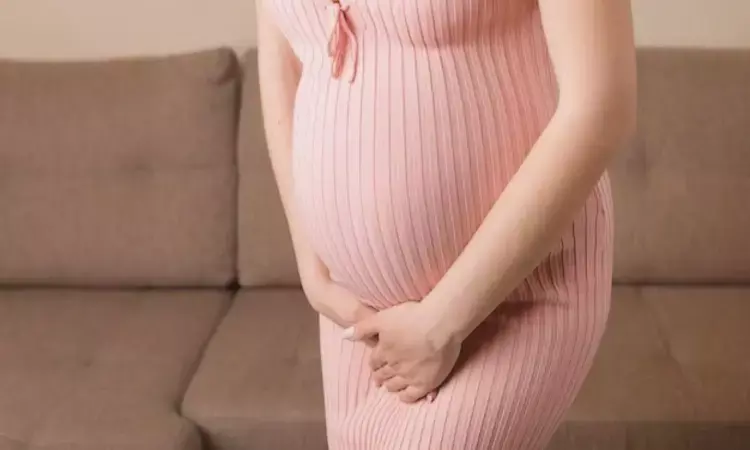- Home
- Medical news & Guidelines
- Anesthesiology
- Cardiology and CTVS
- Critical Care
- Dentistry
- Dermatology
- Diabetes and Endocrinology
- ENT
- Gastroenterology
- Medicine
- Nephrology
- Neurology
- Obstretics-Gynaecology
- Oncology
- Ophthalmology
- Orthopaedics
- Pediatrics-Neonatology
- Psychiatry
- Pulmonology
- Radiology
- Surgery
- Urology
- Laboratory Medicine
- Diet
- Nursing
- Paramedical
- Physiotherapy
- Health news
- Fact Check
- Bone Health Fact Check
- Brain Health Fact Check
- Cancer Related Fact Check
- Child Care Fact Check
- Dental and oral health fact check
- Diabetes and metabolic health fact check
- Diet and Nutrition Fact Check
- Eye and ENT Care Fact Check
- Fitness fact check
- Gut health fact check
- Heart health fact check
- Kidney health fact check
- Medical education fact check
- Men's health fact check
- Respiratory fact check
- Skin and hair care fact check
- Vaccine and Immunization fact check
- Women's health fact check
- AYUSH
- State News
- Andaman and Nicobar Islands
- Andhra Pradesh
- Arunachal Pradesh
- Assam
- Bihar
- Chandigarh
- Chattisgarh
- Dadra and Nagar Haveli
- Daman and Diu
- Delhi
- Goa
- Gujarat
- Haryana
- Himachal Pradesh
- Jammu & Kashmir
- Jharkhand
- Karnataka
- Kerala
- Ladakh
- Lakshadweep
- Madhya Pradesh
- Maharashtra
- Manipur
- Meghalaya
- Mizoram
- Nagaland
- Odisha
- Puducherry
- Punjab
- Rajasthan
- Sikkim
- Tamil Nadu
- Telangana
- Tripura
- Uttar Pradesh
- Uttrakhand
- West Bengal
- Medical Education
- Industry
Pelvic Floor Training Shows Strong Results for Postpartum Urinary Incontinence: Meta-Analysis Confirms

Spain: A comprehensive meta-analysis published in BJOG has revealed that pelvic floor muscle training (PFMT) offers significant relief for women experiencing urinary incontinence after childbirth.
The analysis of 19 studies revealed that PFMT alone substantially reduced symptoms, and its effectiveness increased further when combined with techniques like electrical stimulation, biofeedback, or abdominal muscle training. These findings position PFMT as a safe, non-invasive, and clinically meaningful first-line treatment for postpartum urinary incontinence.
Urinary incontinence affects a significant proportion of new mothers, impacting daily activities, mental health, and quality of life. The meta-analysis provides strong evidence that physiotherapy-based interventions—particularly PFMT—are effective, low-risk options that can help women regain bladder control and improve their overall well-being after childbirth.
The study was led by Cristina Gallego-Gómez from the Faculty of Physiotherapy and Nursing at the University of Castilla-La Mancha, Toledo, Spain, along with her research team. They reviewed data from randomized and experimental studies evaluating training-based therapies for urinary incontinence during the postpartum period. Using rigorous statistical methods, the researchers pooled results to provide a clear picture of how different training interventions impact symptom severity.
The analysis found the following:
- Pelvic floor muscle training alone reduced incontinence severity with a standardized mean difference (SMD) of –1.45.
- PFMT combined with electrical stimulation or biofeedback achieved a greater reduction in symptoms, with an SMD of –2.16.
- PFMT paired with abdominal muscle training showed an SMD of –1.73, indicating significant improvement.
- These results highlight the effectiveness of targeted physiotherapy for strengthening the pelvic floor after pregnancy and childbirth.
While these results highlight the promise of PFMT, the authors noted several limitations. Many of the included studies had relatively small sample sizes and differences in design, intervention methods, and assessment tools, which introduced variability. Despite these factors, subgroup analyses showed that the positive effects of PFMT remained consistent, suggesting that the therapy is broadly beneficial across different populations and clinical settings.
The researchers emphasized that pelvic floor rehabilitation should be considered a first-line treatment for postpartum urinary incontinence, either as a standalone therapy or in combination with other conservative approaches. They also called for more well-designed randomized controlled trials to confirm their findings and to explore additional strategies, such as postural and abdominal wall exercises, that could work synergistically with pelvic floor training.
"By reinforcing the clinical value of PFMT and its combinations, the study supports the integration of structured pelvic floor training programs into routine postpartum care. With early intervention and proper guidance from healthcare providers, many women can achieve lasting improvement in continence and avoid more invasive treatments," the authors concluded.
Reference:
Gallego-Gómez, C., Torres-Costoso, A., Rodríguez-Gutiérrez, E., Martínez-Vizcaíno, V., Martínez-Bustelo, S., Quezada-Bascuñán, C. A., Basco-López, J. Á., & Ferri-Morales, A. Effects of Training Interventions to Treat Postpartum Urinary Incontinence: A Meta-Analysis. BJOG: An International Journal of Obstetrics & Gynaecology. https://doi.org/10.1111/1471-0528.70014
Dr Kamal Kant Kohli-MBBS, DTCD- a chest specialist with more than 30 years of practice and a flair for writing clinical articles, Dr Kamal Kant Kohli joined Medical Dialogues as a Chief Editor of Medical News. Besides writing articles, as an editor, he proofreads and verifies all the medical content published on Medical Dialogues including those coming from journals, studies,medical conferences,guidelines etc. Email: drkohli@medicaldialogues.in. Contact no. 011-43720751
Next Story


